I grew up in a Gujarati household headed by the family matriarch, my beloved Baa. Born and raised in a very large family she often took pride that at least one other person other than our family would be able to join us for a meal and a chilled glass of Chaas after. On rare occasions that it would be just our family eating, leftovers would all upcycle into delicious and very well concealed preparations (Lauki got a makeover with Muthiya and roti was roasted to a be a crisp khakhra).
Everything that was put on the plate was carefully considered for being seasonal, nutritious and appetizing. The grains, pulses and spices would annually come from our homeland and be stored after cleaning and processing. Even though groceries came from a select few local shops, my Baa had a secret companion that helped her achieve this balance of feeding the family healthy and delicious meals.
For Baa, Saturday meant a pilgrim walk to Null Bazaar: a strictly-‐no-‐shopping-‐ cart market right in the heart of Bombay. She would enter through the Oudh scented and the dates-‐lined street of the Bazaar. Slowly and hesitantly, then turn to the meat market with flesh dangling on both sides and the smell of blood hanging heavily in the air. A strict vegetarian that she was, she would swiftly cross the meat market pressing the end of her pallu to her nose with one hand and shooing flies with the other. As Baa made her way across the meat market, finally like the peak of Mount Kailash; would emerge the plump, navvari clad figure of Gore maushi. Her eye to eye grin would greet Baa along with baskets full of traditional and seasonal ingredients. Kachi keri (raw mango), tadgola (ice apple), jambu (Indian blueberry) in the summers; super clean moras greens and navdhari bhindi in the monsoons; fresh aamba haldi, ponkh (sorghum seeds), jini methi (tender fenugreek), lila mari (green peppers) in the winters. Baa also scored ingredients for her famous undhiyu from Gore maushi: lilvaa tuver (field beans), katargam Papdi (flat beans), ratalu (purple yam), suran (elephant yam). Each ingredient was carefully sorted and hand-picked with her trained eyes and a sharp sense of smell.
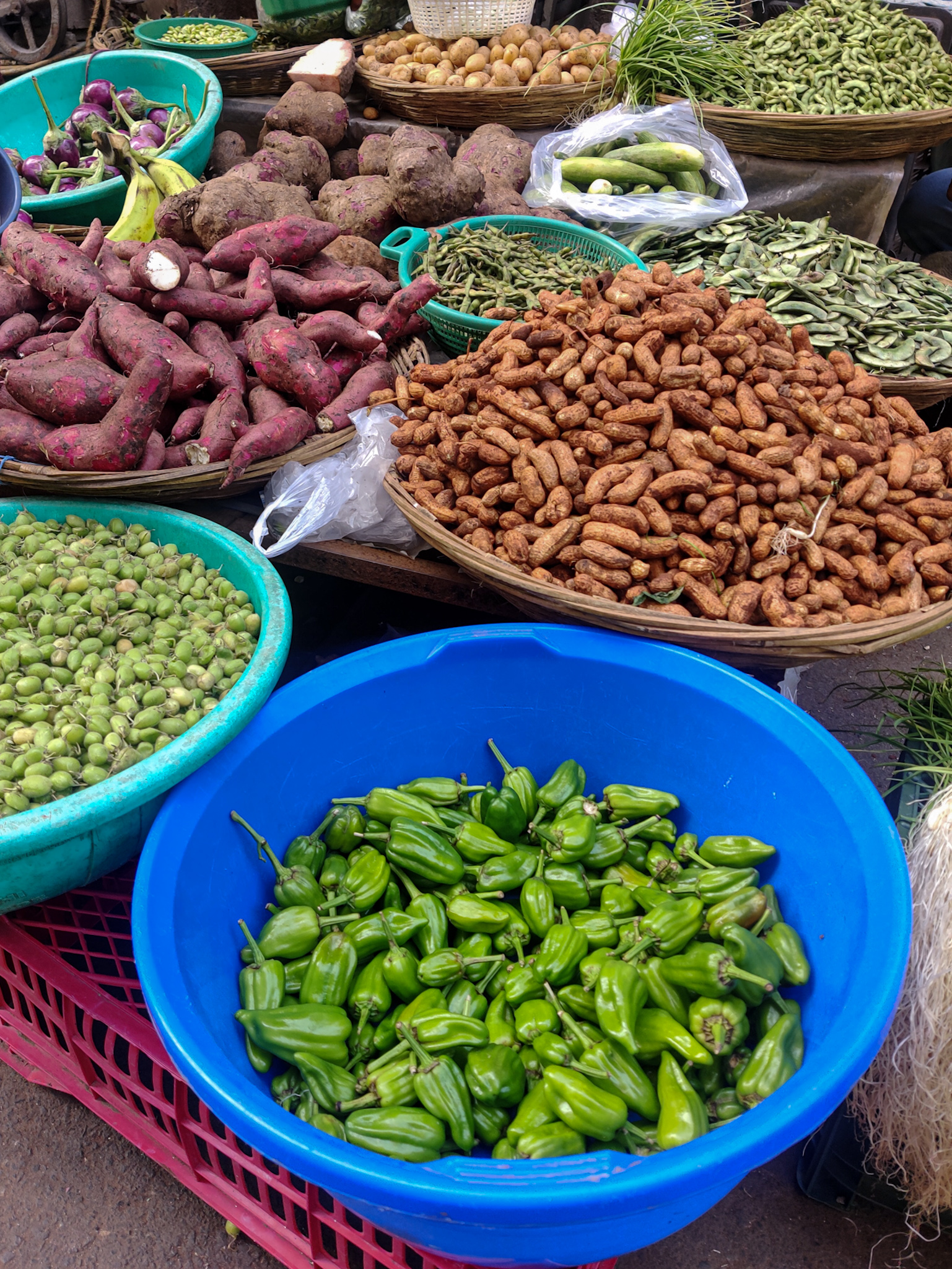
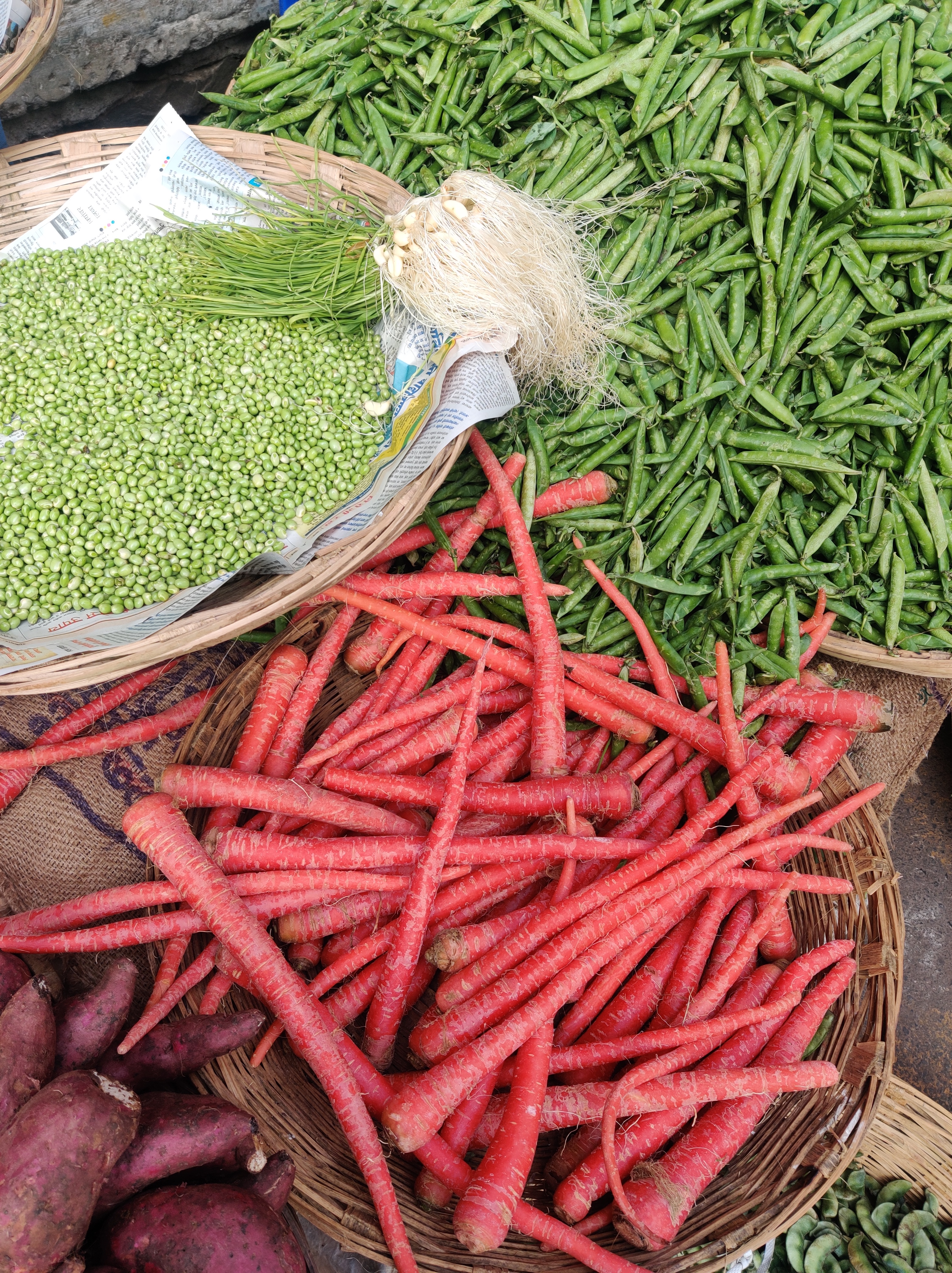
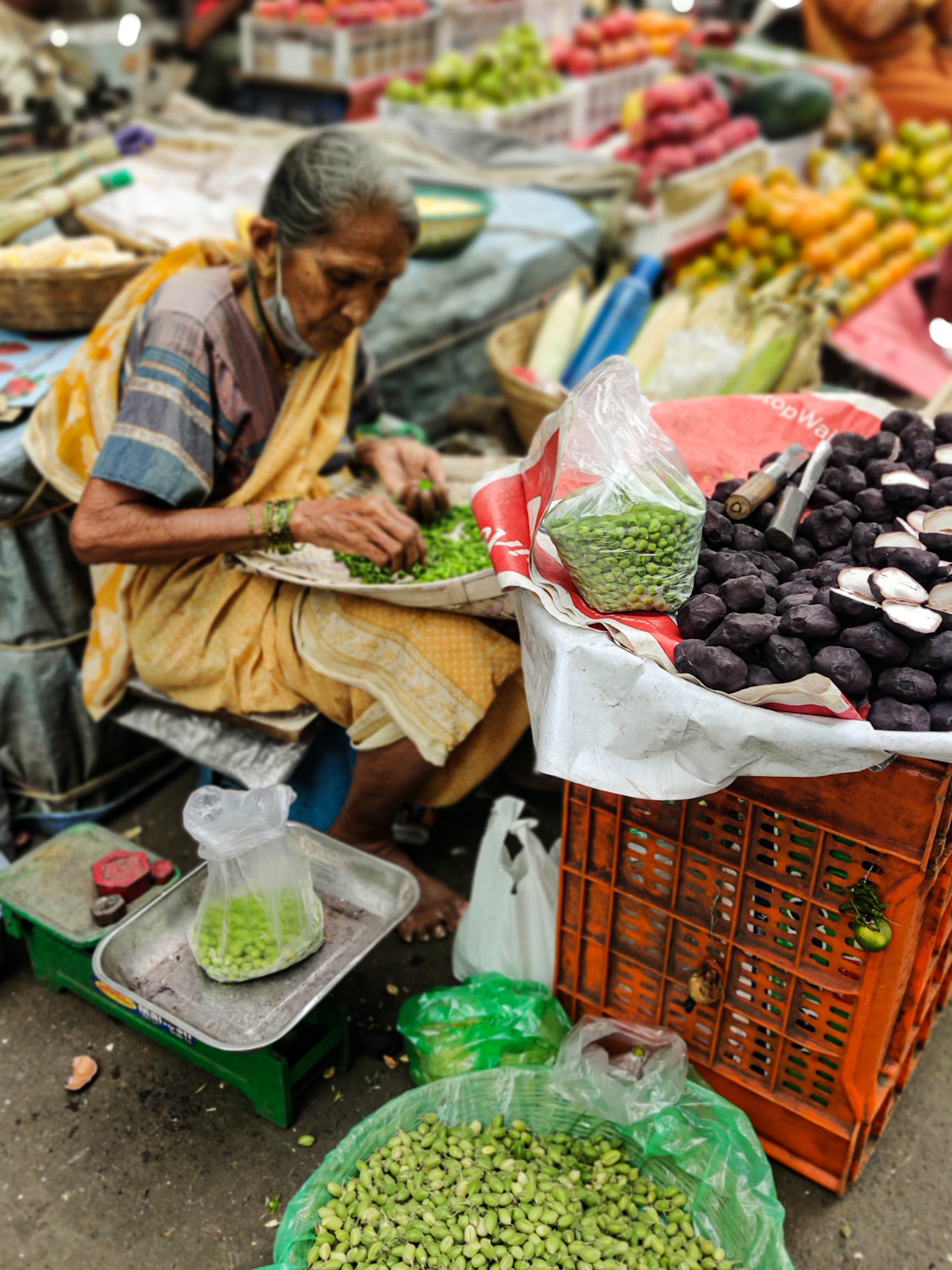
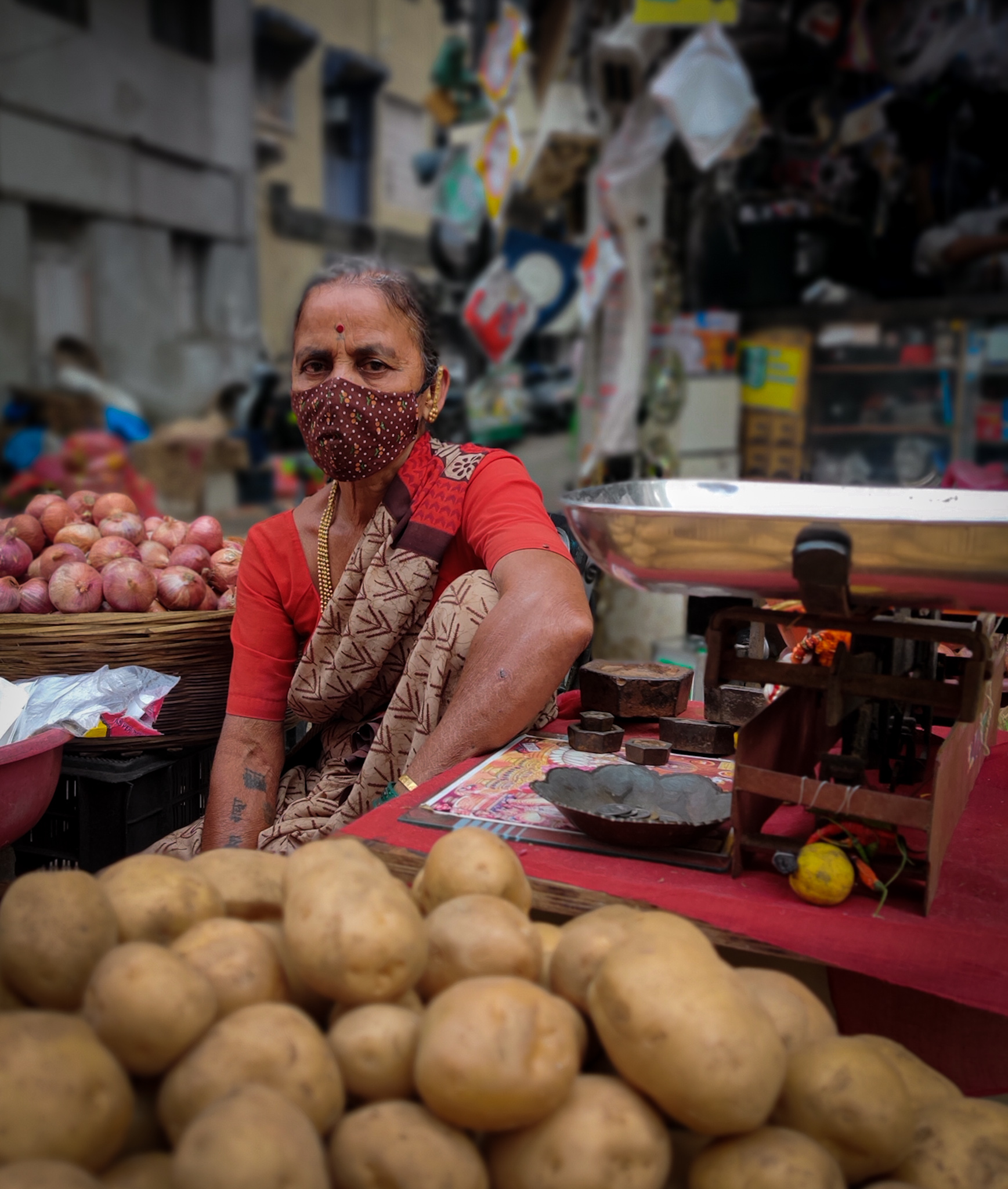
Their relationship wasn’t purely transactional. They first met when my Baa was a newlywed from Bhavnagar and moved to a distant and foreign city, Bombay. As time passed their relationship continued to grow deeper. Baa would often pack sheera (with each grain of rava loose, just as maushi liked it) and tal na ladu (sesame seed and jaggery balls) for her. On festive occasions, a new sari with homemade mithai would also be sent over. This was a balanced barter. Gore maushi introduced Baa to native Maharashtrian ingredients; the wild mushrooms that her family would harvest in the monsoons, pumpkin flowers, fodshi bhaji, shevle (dragon stalk yam) and Baa’s absolute favourite kokum. These ingredients were accompanied by heirloom recipes to cook them as well. Luckily, a merely 10-year‐old me would be Baa’s porter on these trips and be happily bribed with a glass of sugarcane juice or a small packet of mirchi sprinkled star fruit.
As I grew older and set up my kitchen, my own pilgrim began. My Baa and I lived in different times. The vendors were now busier and the markets more crowded than before. After several trials and countless trips to the narrow and buzzing Grant road bhaji galli I developed a network of specialists. The wholesale aloo pyaaz guy who would pull out Madras onions from a tiny bag, the Palghar wali Aaji who would bring kantola (spiny gourd), singada (water chestnut), bhavnagri marcha, purple mougri (string beans), chayote and other home‐grown produce, and the dada who would stock romanesque broccoli, leeks, Pok Choy, artichoke, purple carrots and galangal. By now I had a favourite Baba. He would smile generously and keep ready a kilogram of bright red and juicy tomatoes from the heap on spotting me from a distance.
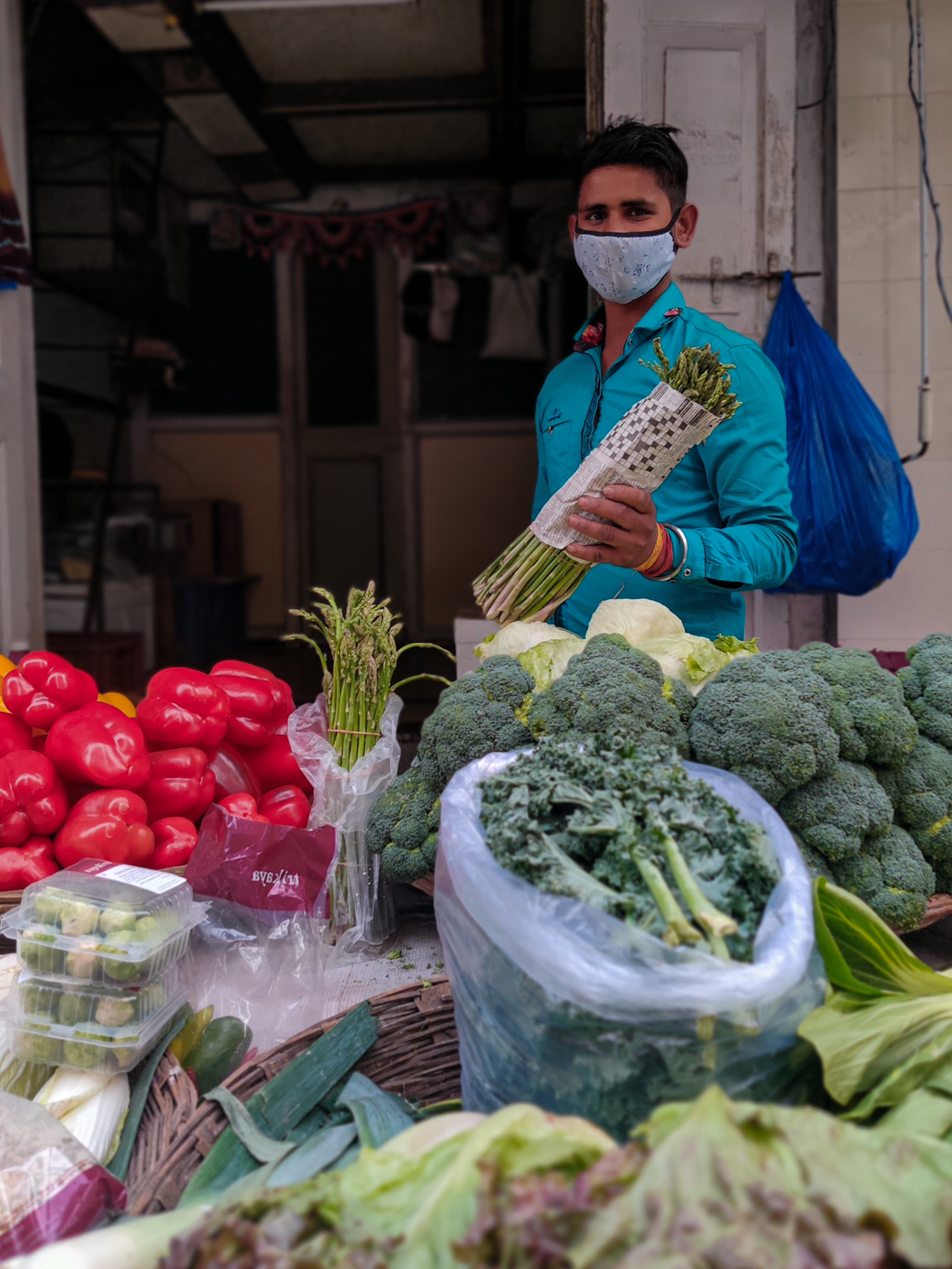
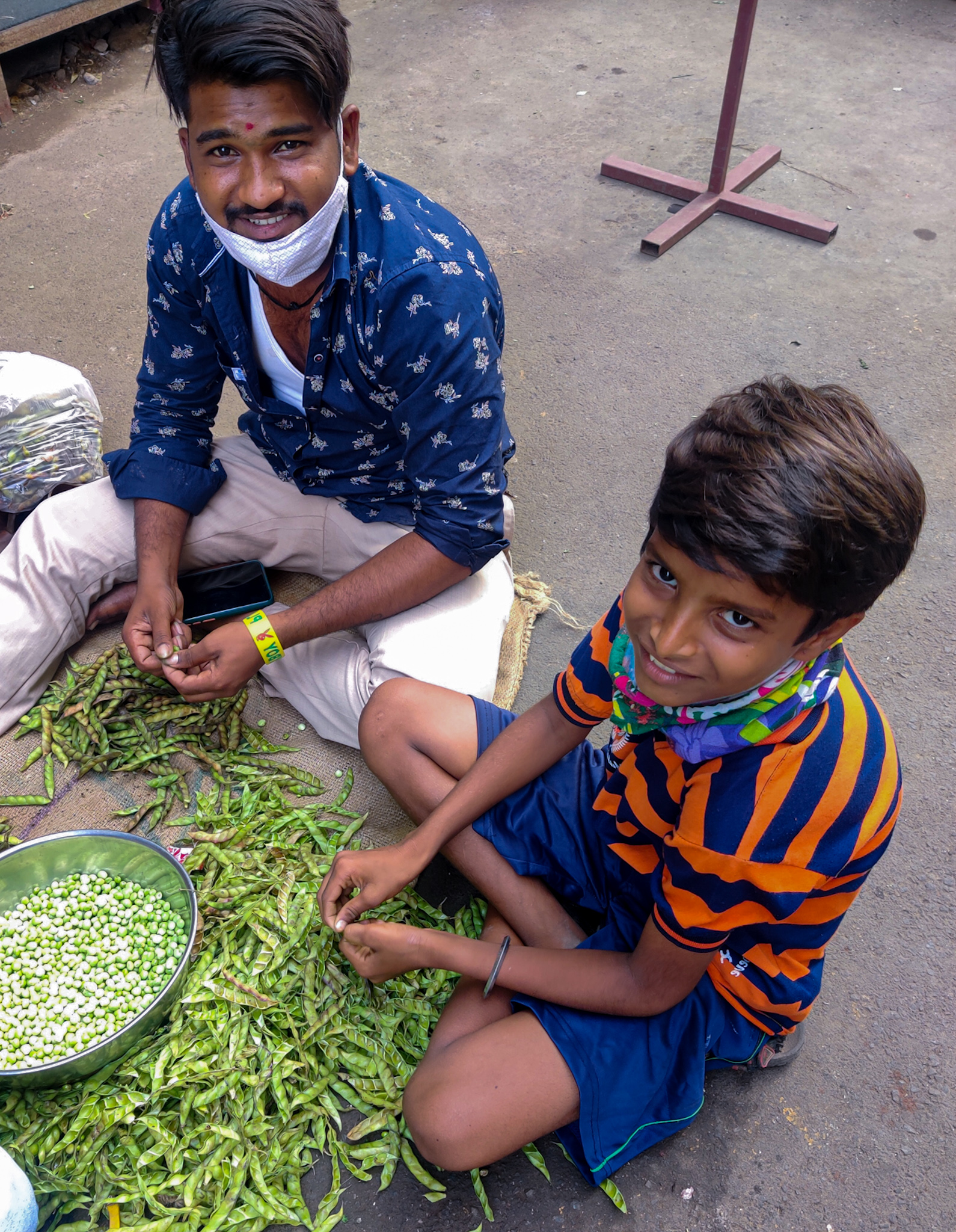
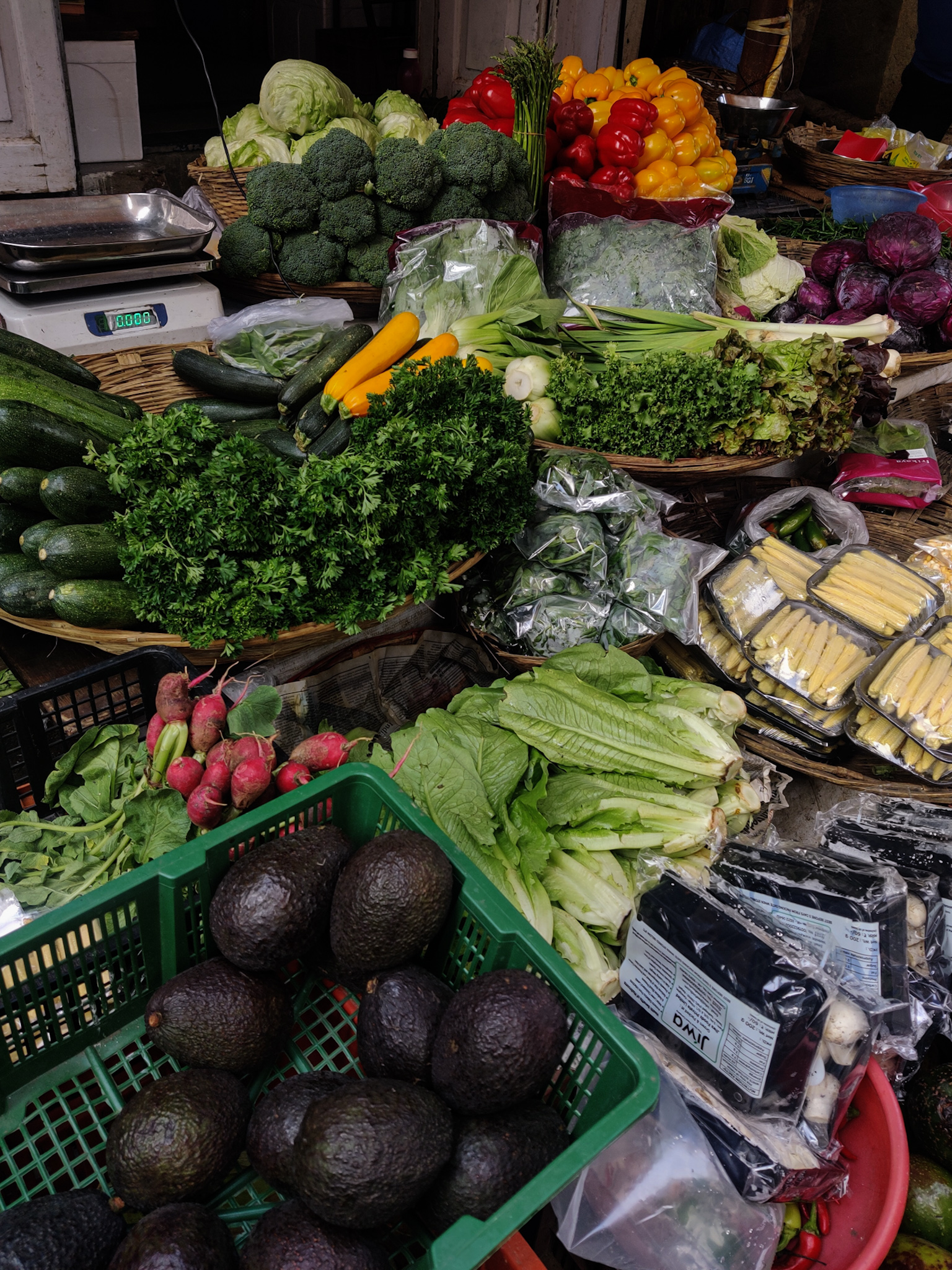
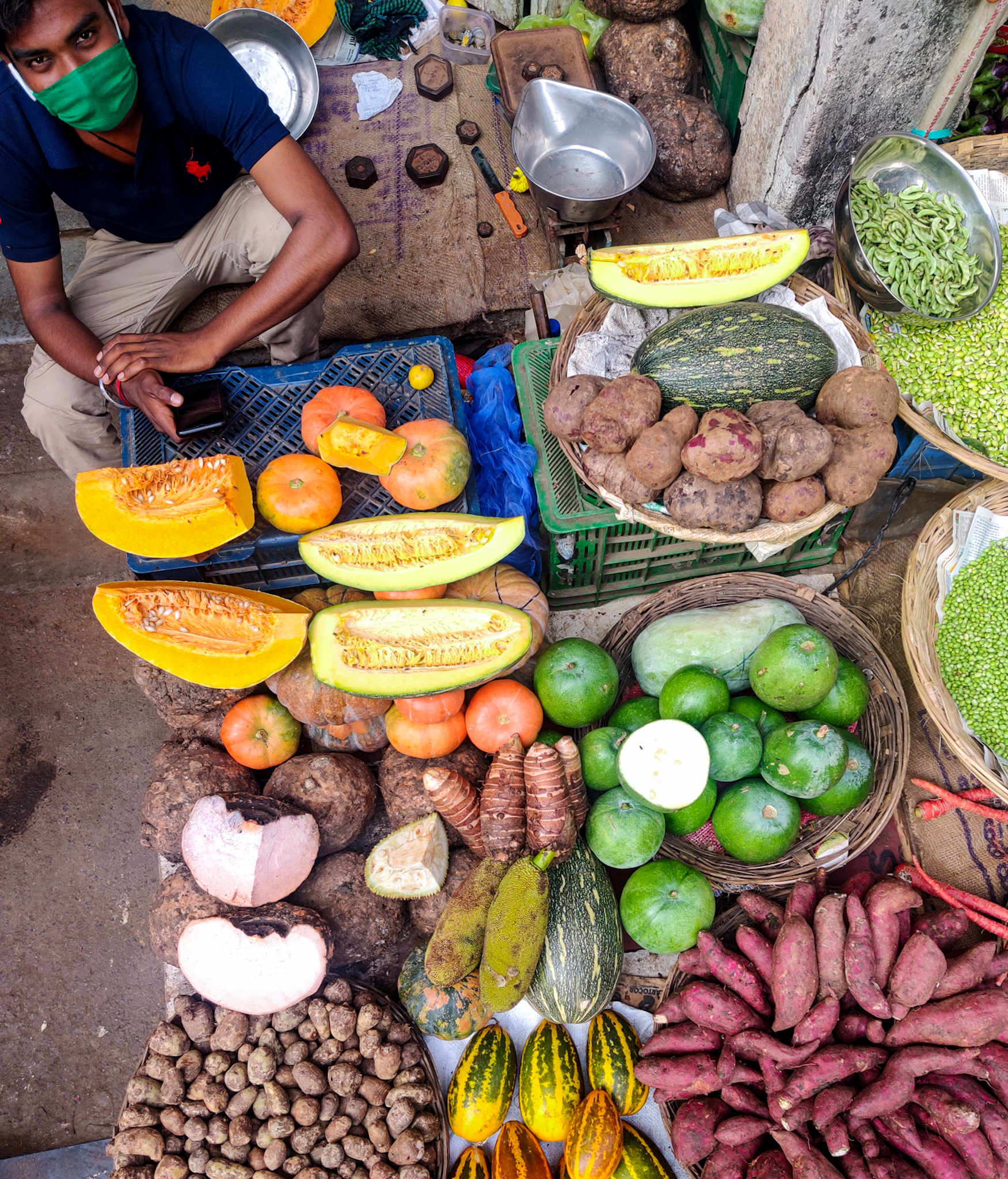
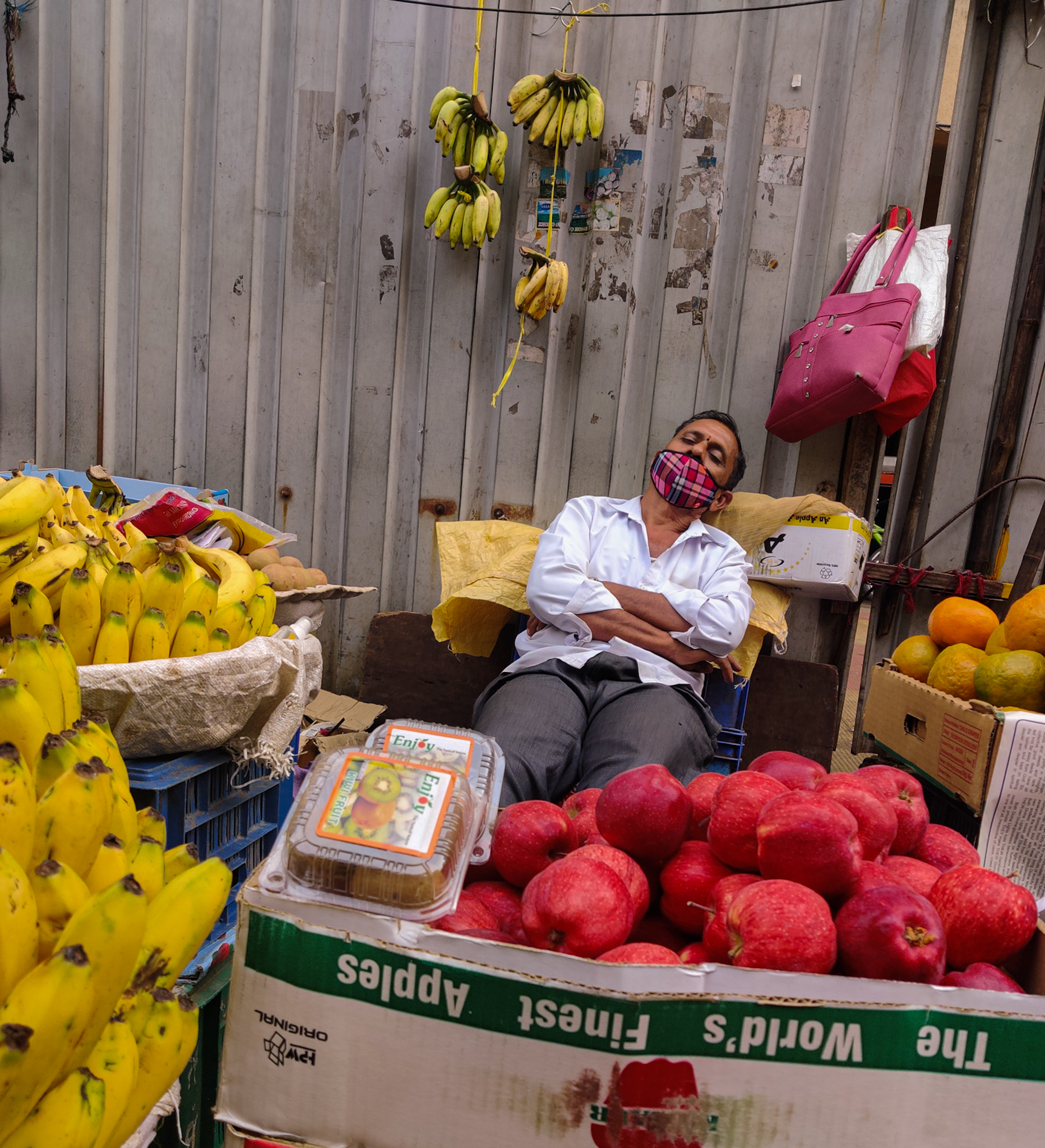
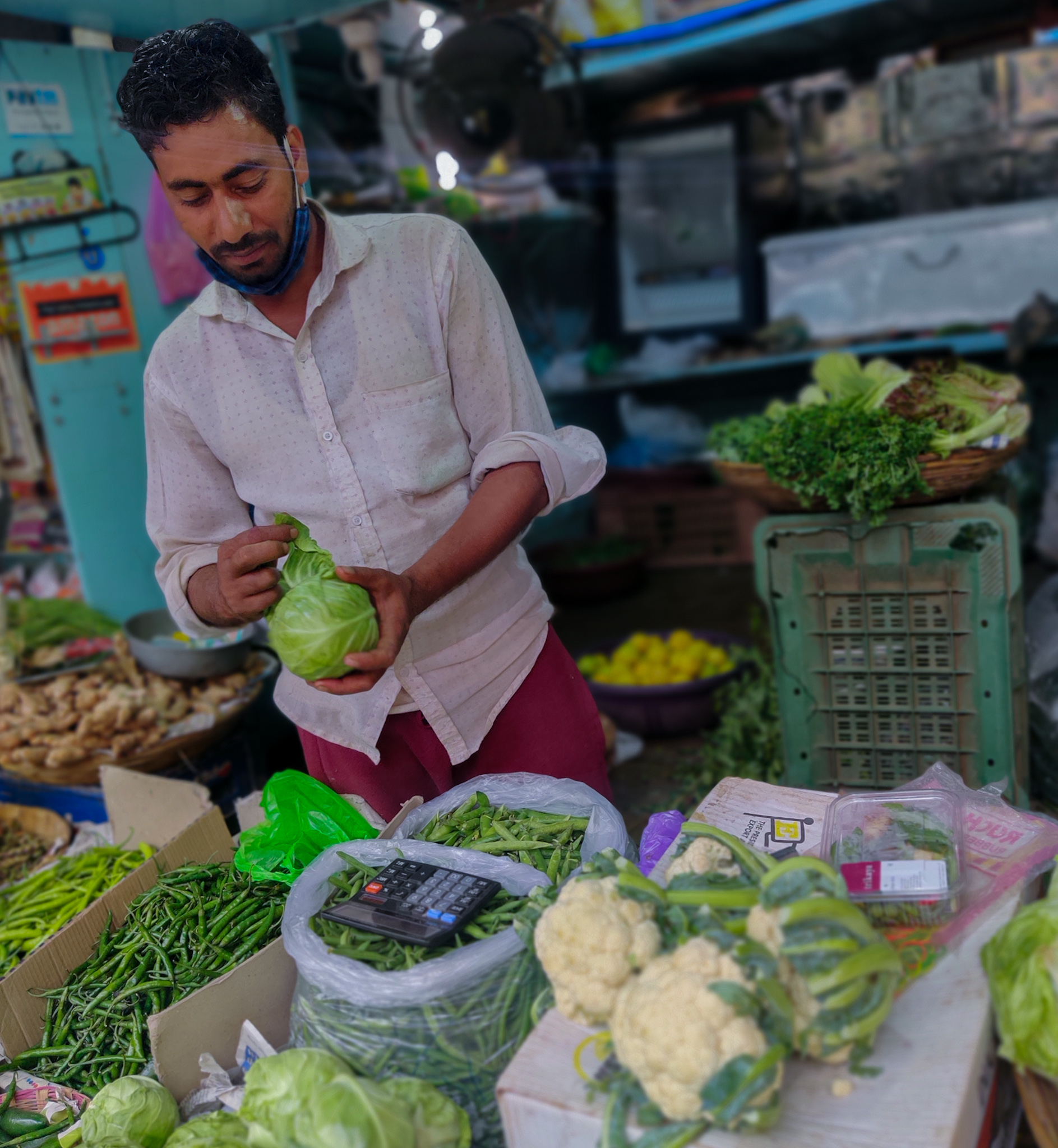
Each trip to bhaji galli would mean being exposed to the latest fad, the new superfood and sometimes a new way to cook the old recipes. Mushrooming all across the street, these guys were my gateway to discovering my own cuisine as well as a portal to world cuisine. Over time I developed a coveted tradition of visiting the galli on Diwali with boxes of ghee-laden extra‐large ladoos from Tewari’s and coming back home with a heart full of blessings. Baba was different. He wasn’t interested in sweets. So, along with ladoos, I carried a large bottle of chilled Fanta, just as he liked. The Sugarcane juice was still the bribe; only this time I was awarding it to myself or my sister who had been forcefully dragged along to be the new porter.
As COVID19 hit the world, Bombay went from being the most restless city in the country to a ghostly quiet and empty barren maze of buildings and streets. The by-lanes slowly emptied out like water going down a funnel. All that remained was a mighty skyline, gleaming with the setting sun. It took only one positive case and my utopian Bhaji galli was barricaded end to end. Along with the barricades on the street, came a barb-wired wall to my treasured ingredients and the cherished people.
This meant, for my daily supplies I turned to street vendors or the occasional van being sent out by the local community. Each time as I bravely stepped out to shop with a mask on my face, I saw new faces and maintained appropriate distancing. Through the masks, one could see the fear on every face and the unrestrained laughter that was exchanged at every step seemed like a distant dream. Click and buy through Bigbasket, Scootsy and Swiggy to keep the groceries coming in was the only way out. This new change in supplies had stolen the joy of the familiar people and made me miss their sheer generosity. In between the newfound love of baking banana breads and the Thai potstickers, the ingredients were fresh, the variety was huge, thankfully it was still rainbow on my plate… but the showers of love and the very unusual companionship is what I craved… It was like not having that very essential ingredient to take my dish to its Umami.
It’s been 9 months since the lockdown and I am sitting safely in the cocoon of my home, blessed to be with my family, sharing a meal. With the world getting used to the new way of life, slowly Bhaji galli too is inching its way to its pre COVID glory. Come Diwali came memories of the consecrated ritual of ladoos and that one bottle of Fanta. Those rituals still seem an elusive and distant dream and I often am thinking of Baba and wonder when will I buy my large bottle of Fanta? Or should I just add to cart
Prabhuti Vadhaiya is a visual merchandiser with a very deep rooted affection for food. Her connection to food was imbibed with elaborate prayer rituals before each meal that developed a sense of reverence and gratitude for everything that was put on the plate.
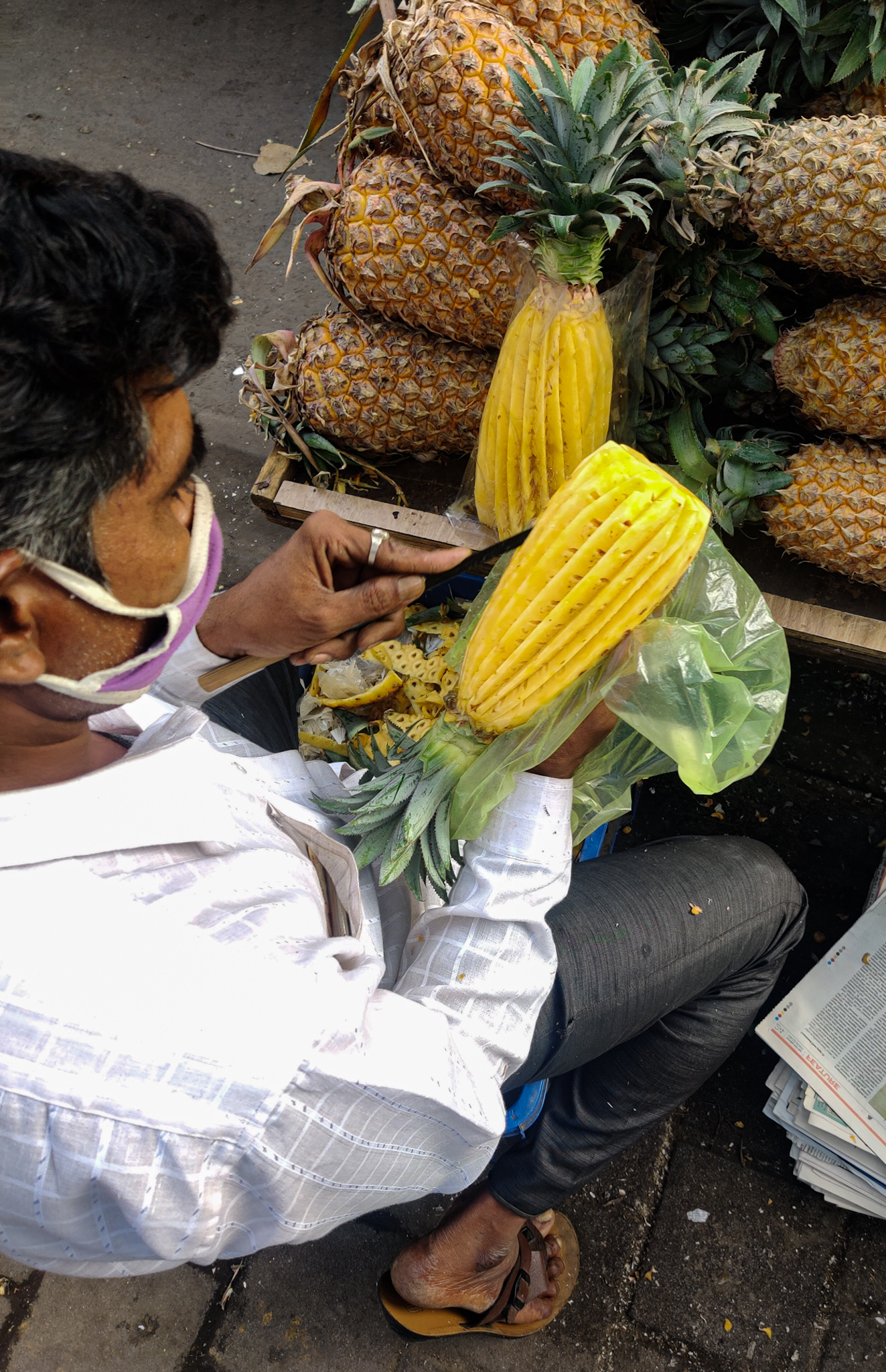
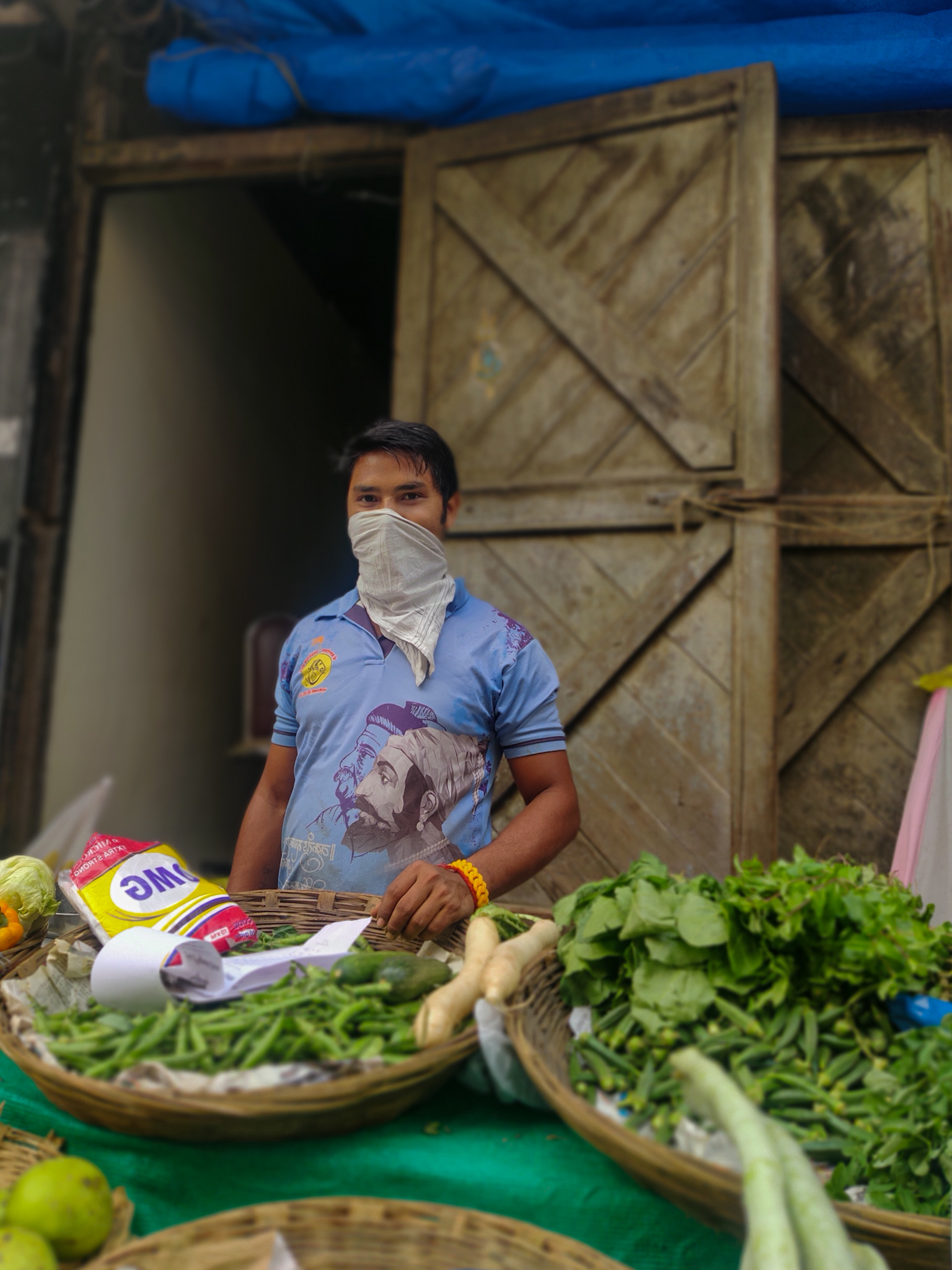

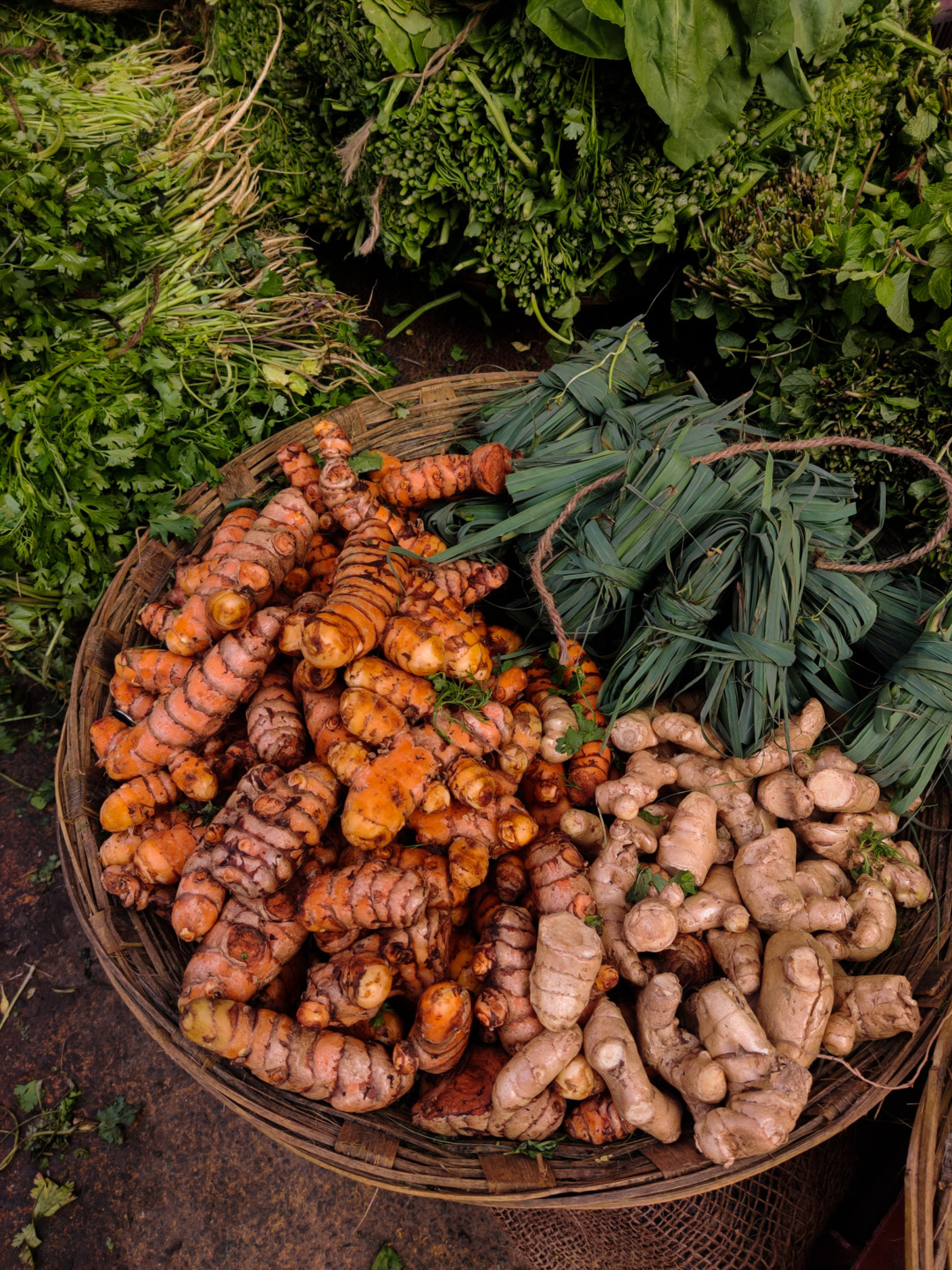

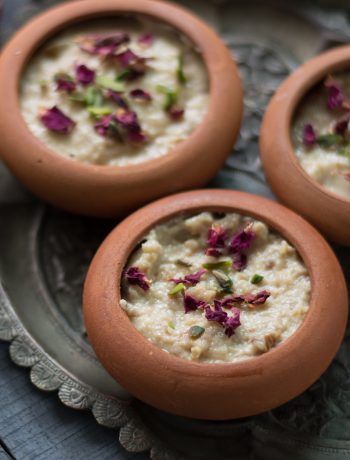
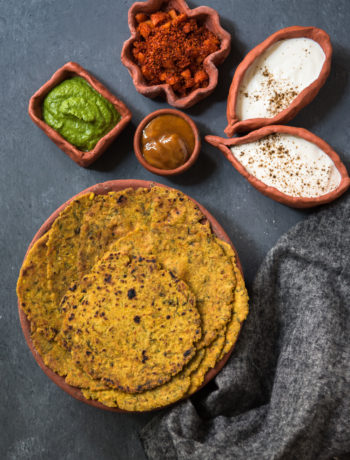
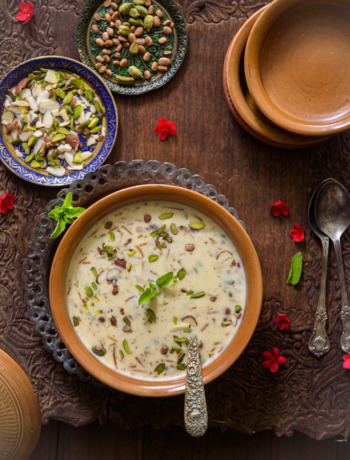
7 Comments
Trusha goda
January 5, 2021 at 4:17 pmSuperb writing ,I m having a goosebumps with my memories with my beloved baa as I was the most close among 4 siblings, I could relate each word ,really you made my day by taking me to my baa zone 😘many things other too I resonate ,thanks again for superb moments
PARVIN DESAI
January 31, 2021 at 12:50 pmWonderful yes cannot explain thehuman touch n banter to mg new age daughter.
Sheetal
February 3, 2021 at 6:45 amOh yes, this needs to be experienced to be believed. Thank you so much for stopping by.
Ritika Bhandari Parekh
February 3, 2021 at 2:40 amThis is beautiful writing.. took me sabji shopping with mom.. parle market is such too
Sheetal
February 3, 2021 at 6:43 amThank you for stopping by. Yes, Prabhuti’s writing has evoked beautiful memories.
PRABHUTI VADHAIYA
February 4, 2021 at 10:39 amThankyou so so much Sheetal 🙂
Glad you enjoyed the read Ritika 🙂
Sachinn Desai
October 20, 2023 at 1:00 pmExceptional Writing.. Just amazed by reading how Prabhuti can put her thoughts into words.
A big fan now!!!